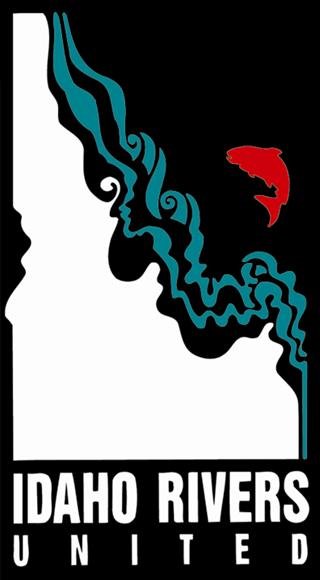Changes secured to Colson-Cobalt mine along the Salmon River by IRU & partners
The Colson-Colbalt mine is just a few miles upstream from the confluence of the Middle Fork and Main Salmon River, pictured here. Photo credit: Tess McEnroe, IRU staff
Idaho Rivers United and our partners are happy to announce some very positive changes to an exploratory drilling project along the Salmon River, just upstream of the confluence with the Middle Fork, as a result of an objection resolution process with the Forest Service and the project operators.
The Colson-Cobalt Copper 3 project seems to have flown under the radar for many who undoubtedly have deep connections with the project area. Located on the north side of the Salmon River, the project is situated in the hillsides between Colson Creek and Long Tom Creek, roughly a mile upstream from the confluence of the Middle Fork of the Salmon River.
While we would have certainly preferred that this project never moved forward at all based on the location, the antiquated mining law of 1872 that governs hard rock mining and declares that mining is the “highest and best use” of public lands. This language severely limits the Forest Service, and other land management agencies, to deny these types of projects, even when there is a clear contradiction with other laws or policies.
Knowing the constraints that the mining law puts on the Forest Service to approve these types of proposals, we still had major issues with the impacts that this project could have on one of Idaho’s most iconic stretches of river and are generally pleased with the compromises that we were able to secure as a result of our comments and objection.
Through our objection and the subsequent resolution meeting, we were able to secure the following changes to the project scope:
Removed four drill sites that were located within the Wild & Scenic river corridor.
Moved two additional drill sites to fall outside of the viewshed of the Middle Fork of the Salmon River.
Made additional information public regarding the Biological Assessment for Bull Trout and critical habitat that was not included in the initial Environmental Assessment.
Recently, there has been an increase in exploratory projects for minerals that will provide resources for green technologies such as solar panels and electric vehicles. We wholeheartedly believe that a transition away from fossil fuels and into a greener economy is a must, however, this clearly highlights the need for immediate reform of the 1872 mining law in order to help us achieve these goals responsibly.
While we are happy to have made progress in the scope of this project and would have preferred to see it denied outright, threats like this are only going to continue. Right now, this project is purely exploratory in nature. If there is ever a desire to develop a working mine on this claim, we will certainly be involved and will be sure to keep our members informed on how you can have your voice heard as well.


